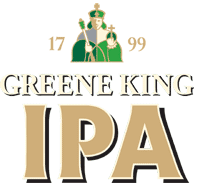International Phonetic Alphabet/English
The International Phonetic Alphabet is a set of phonetic notation which seems to have been invented solely to annoy anyone who had any sort of intentions to actually figure out how something is pronounced. It is never used, as anyone who would have the time to learn the full notation doesn't have any friends to talk to with it.
The symbols of the International Phonetic Alphabet are divided into three categories: America Letters, Weird Greek Letters, and Upside Down Made-up Letters.
Any sound can be written in the IPA, including the sound of clicking the tongue, gnashing one's teeth, engaging in open heart surgery, dying a bit inside, and even the sound of one hand clapping.
History[edit | edit source]
Origin[edit | edit source]
The IPA has been around as long as anyone can remember. It was unearthed in Gaul in ancient times, and when the people of Gaul attempted to use it to destroy the Roman Empire, it backfired, turning Gaul into France and making their language impossible to pronounce. Julius Caesar then found the IPA, and, although Elrond told him that it was evil and must be destroyed, he did not listen. He attacked Elrond with the IPA, and turned Elvish into this really weird language that only people who don't have a life would understand. Historians speculate that a similar event occurred during the birth of the Klingon race.
Modern International Phonetic Alphabet[edit | edit source]
The late 18th century saw a rebirth of the IPA and drunk peasants around England began to take it up, as a means to document their criminal activities without ending up in Her Majesty's Pleasure.
Here are some examples of the language in use and their translations:
"wɒnt səm ˈstəʊlən ˈkɒdˌpisɪz?" - "Want some stolen codpieces?" "lɛts bləʊ ʌp ˈpɑ:ləmənt!" - "Lets blow up Parliament!"
However this did not work very well as, when spoken out loud, it sounded exactly the same as the English. The language soon died out, but some pub's cling to their traditions and enforce an IPA only policy. They can be identified by distinctive signage.
Symbols in the International Phonetic Alphabet[edit | edit source]
The symbols of the International Phonetic Alphabet are non-Euclidean insanities, and can't be grasped fully by any being residing in a dimension less than the twelfth. For some reason people in the 23rd Dimension suddenly aren't able to grasp it, but then in the 24th you can grasp it again. It's weird. But here's an overview of all of them. (WARNING! If your brain explodes while looking at these symbols, please refrain from viewing them.)
- ɹ - Upside-Down "r". Pronounced like an "r", except upside down.
- tʰ - tHH. Consonant-release diacritic.
- a - a. Pronounced like seven "n"s in succesion.
- ẽ - Squiggle-e. Twist your toungue in a u-shape and make the sound of a heartbroken giraffe.
- ʄ - Impossible to draw F. Pronounced like the entirety of the Brennu Njal's Saga, excluding every fifth word.
- s͢θ - a. Pronounced like eight "n"s in succesion.
- aĦ - Jar-Jar. Draw back the tongue and choke on a bagel.
- Ɗ/Ƌ Ə/Ǝ Ɠ Ħ Ɯ Ɲ Ɵ Ʈ Ʊ Ʋ Ʒ - Jay. Pronounced the way it looks.
- Bilabials such as b (like a p sound) p (like a b sound), the sound in english known as th and several greek letters maybe toxic and therefore revlacements have to de found. until den we all have to talk like de jamaicans
- ɸ/β - Bilabial fricatives (see Lesbian)
The letters of the International Phonetic Alphabet change depending on the weather, time, and marital status of the reader. Therefore, when a married person says, "d̚ tʲ dʲe̽ ɯ̽e̽ ɯ̽e̽ ɯ̽", a single person might think he meant "e̝ ɹ̝ ˔tʷ dʷtˠ dˠ", leading to a hilarious misunderstanding! Be careful when you use the International Phonetic Alphabet.
Usage[edit | edit source]
Although no one uses the IPA, several people have tried. Some of the more interesting cases are shown below:
- Geoffrey Chaucer, The Canturbury Tales
- Lewis Carrol, Jabberwocky
- Patti Labelle, Lady Marmalade
- James Brown laik a seks maʃi:n
